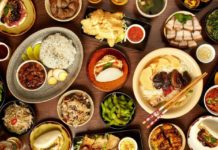Vietnamese culture is rich and diverse, shaped by the country’s long history, geography, and influences from various ethnic groups. Here are some key aspects of Vietnamese culture:
- Family Values: Family plays a central role in Vietnamese culture, and family values are highly respected. Filial piety, or the concept of showing respect, obedience, and care towards one’s parents and elders, is considered a virtue. Family members often live in close proximity to one another and maintain strong familial bonds.
- Confucianism: Confucianism has greatly influenced Vietnamese culture, particularly in terms of social norms and moral values. Confucian principles such as respect for authority, harmony, and collectivism are deeply ingrained in Vietnamese society and guide social interactions, relationships, and hierarchical structures.
- Buddhism: Buddhism is the largest religion in Vietnam and has a significant influence on the culture. Many Vietnamese people practice a combination of Buddhism, Confucianism, and local folk beliefs, resulting in a syncretic blend of religious practices.
- Cuisine: Vietnamese cuisine is known for its fresh and healthy ingredients, bold flavors, and intricate culinary techniques. Pho (noodle soup), banh mi (Vietnamese sandwich), and spring rolls are some of the most famous Vietnamese dishes enjoyed both domestically and internationally.
- Traditional Arts: Vietnamese culture is rich in traditional arts, including lacquerware, silk weaving, pottery, wood carving, and water puppetry. These arts reflect Vietnam’s history, folklore, and daily life and are considered valuable expressions of the country’s cultural heritage.
- Festivals: Vietnamese people celebrate various traditional festivals throughout the year, such as Tet (Lunar New Year), Mid-Autumn Festival, and Hung Kings Temple Festival. These festivals are often accompanied by colorful rituals, performances, and traditional activities, showcasing the cultural diversity and vibrant spirit of Vietnam.
- Respect for Elders: Respect for elders is deeply ingrained in Vietnamese culture. Younger generations are expected to show deference and obedience to their elders, and the opinions and advice of older family members and community leaders are highly valued.
- Social Etiquette: Vietnamese culture places a strong emphasis on social etiquette and politeness. This includes practices such as bowing, using polite honorifics, and avoiding confrontational behavior. Saving face, or maintaining one’s reputation and dignity, is also an important aspect of Vietnamese culture.
- Love for Nature: Vietnamese culture has a deep connection with nature, and many traditional customs and beliefs revolve around the natural environment. Vietnam is known for its beautiful landscapes, including rice terraces, mountains, rivers, and beaches, which are often celebrated in literature, art, and folklore.
- Strong Work Ethic: Hard work and perseverance are highly regarded in Vietnamese culture. Many Vietnamese people have a strong work ethic and value diligence, discipline, and determination in pursuing their goals and aspirations.
These are just a few aspects of Vietnam’s rich cultural heritage. Vietnamese culture is multifaceted and continues to evolve, with a blend of traditional values and modern influences shaping the way of life in Vietnam today.




